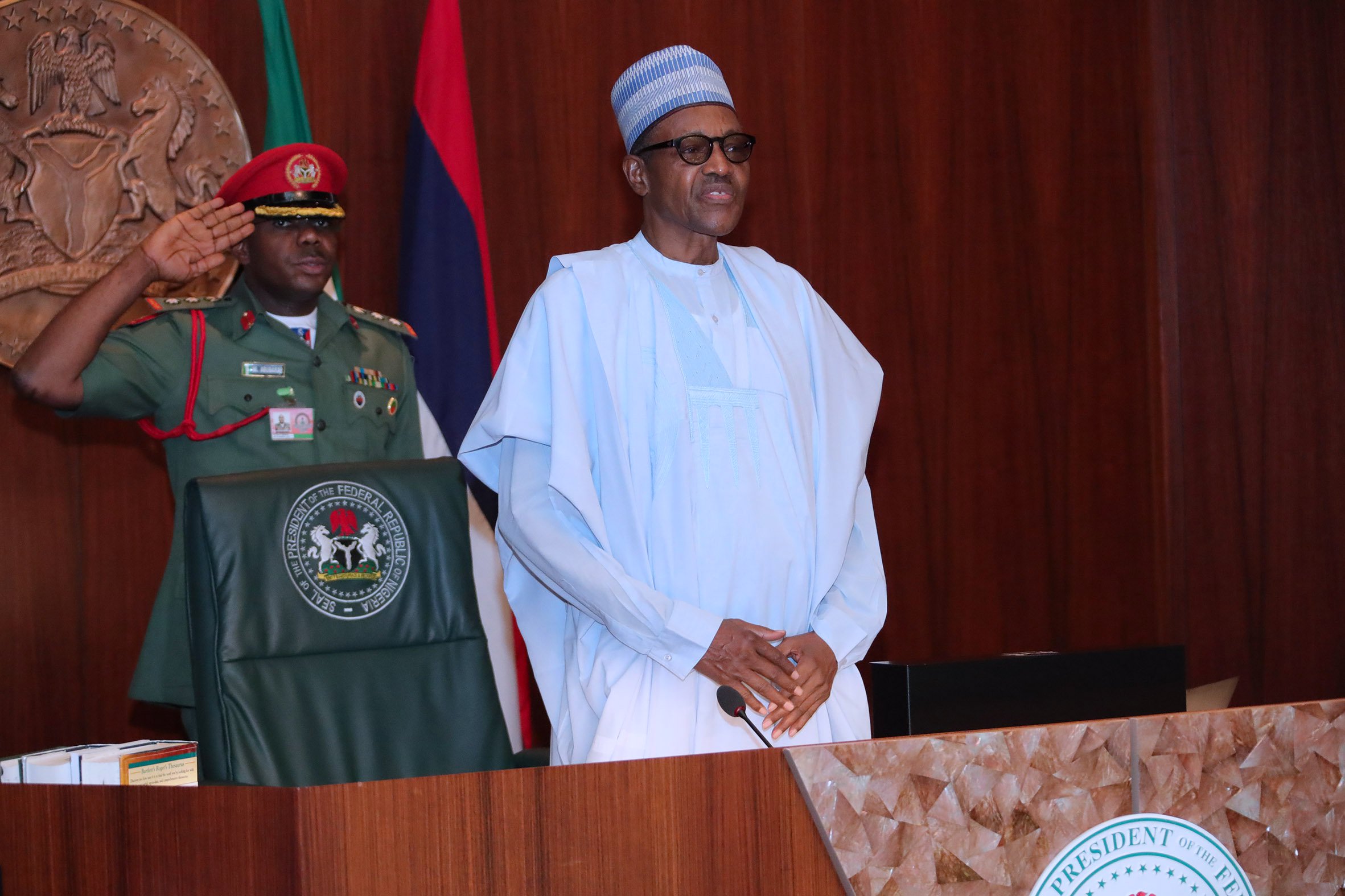By VETIVA
What shaped the past week?
Global: – With the coronavirus still restricting economic activities around the globe, investor sentiment remained unchanged this week as they hold out on hopes for a COVID vaccine. Wall Street traded in a mixed fashion over the course of week, as a rise in China-US trade tensions, driven by reports of Chinese officials seeking to renegotiate the trade weighed on investor sentiment. In addition, comments from Fed Vice-Chair Randal Quarles in which he stated that he expects the unemployment rate to be extremely high in the near-term, coupled with the US budget deficit hitting a record $738 billion, left investors feeling jittery as economic contraction witnessed in the month of March highlight the dramatic impact of the virus on global economic activity. Across the Atlantic, fears of a second wave of the COVID-19 outbreak in Europe, heightened investor uncertainty about the global economy as the outbreak continues to wreak havoc on the services, transportation and energy sectors. Furthermore, an economic bulletin report published by the European Central Bank (ECB), stated the bank expects the Eurozone economy to contract by 12% amid the pandemic. Meanwhile, the Bank of England Governor Andrew Bailey asserted that the United Kingdom’s economy could shrink 30% in the H1’20 amid the coronavirus pandemic. Finally, the recent escalation in US-China relations weighed on investor sentiment in Asia, as U.S. President Donald Trump stated that the U.S. could not renegotiate its 2019 trade agreement with China, in addition U.S. Congress, approved a bill in which the president could impose sanctions on China, over their handling over the COVID-19 outbreak.
Domestic Economy: Last week Thursday, the Federal Executive Council (FEC) approved a revision to the 2020 budget and the Medium-Term Expenditure Framework for 2020 – 2022. Key revisions in the budget include a $25/bbl crude benchmark and a target production rate of 1.94mbpd, in addition to the revision of the exchange rate to ₦360/$. The budget for 2020 was downsized to ₦10.5 trillion, ₦71.5 billion lower than the previously approved budget. The revision of the expenditure plan came with a widening of the anticipated deficit, from ₦2.18 trillion, to ₦5.36 trillion. The proposed deficit will be financed by both domestic and foreign borrowing. With crude demand taking a nose-dive on the contraction in global economic activity, brent crude prices – on which Nigeria’s bonny light crude is benchmarked – have fallen 60% this year to trade at $30/bbl. Unfortunately, Nigeria relies on oil earnings for 90% of its FX revenue. The sharp drop in oil earnings has resulted in macroeconomic imbalances, intensifying recessionary pressures. As the country’s ability to fund critical infrastructure will be hamstrung, debt servicing costs are expected to increase – albeit marginally – as macroeconomic conditions have tightened. Although the government has resorted to concessionary financing to enable it to enjoy some benefits of borrowing in foreign currency, the supply of that is limited and may not cover the projected budget deficit. Consequently, we expect the government to be more aggressive in raising revenue in the domestic market, amid weak tax receipts and as borrowing at commercial rate in the international market is not economically viable.
Equities: The weakened macro environment continued to weigh on the local bourse as the NSEASI (-72bps w/w) closed lower last week. The Consumer Goods (+225bps) and Oil and Gas (+156bps w/w) sectors saw renewed interest last week, with UNILEVER (+996bps w/w) and MOBIL (+994bps w/w) leading all gainers in their respective sectors. However, the Banking (-3bps w/w) and Industrial Goods (-218bps w/w) sectors closed lower this week, as investors booked profits on counters, which had gained in previous sessions; Notably, BUACEMENT (-596bps w/w) led the losers table in the Industrial Goods sector. Furthermore, market heavyweights DANGCEM (-443bps w/w) and MTNN (-223bps w/w) closed lower this week, as profit taking activity drove the counters lower. For the week, traded volume and value fell 44.37% and 46.35% respectively.
Fixed Income: The DMO conducted a PMA on Wednesday, where they offered ₦32 billion and sold ₦142 billion across the three maturities at stop rates of 2.50%, 2.85% and 3.84% (effective yields: 2.51%, 2.87%, and 3.94%). On Thursday, the CBN held an OMO, where they offered ₦70 billion but recorded no sale. Interest in the fixed income space remained skewed to the OMO market, as system liquidity drove continued buying-interest in tenors across the curve. Yields in the space eased 195bps w/w. Meanwhile, with a dearth of catalyst to drive increased activity in the NTB and bond segments, average yield eased 36bps and 61bps w/w respectively.
Currency: The Naira appreciated ₦1.25 w/w at the I&E FX Window to settle at ₦386.00 and depreciated ₦7.00 w/w to close at ₦445.00 against the dollar in the parallel market.
What will shape markets in the coming week?
Equity market: We saw a mixed performance in the equities market this week, as it started on a bearish trend (courtesy of profit taking on the gains made in the previous weeks) while investors took buy positions at mid-week. With the gradual improvement of economic activities in the country as well as other countries around the world, we likewise expect the domestic market to pick up in similar proportion, though the persistent Covid-19 remains a major threat.
Fixed Income market: As sentiment in the secondary market remains unchanged due the overhanging uncertainty in the global economy, we expect the market to continue to trade in a similar mixed pattern at the start of next week.
Currency: We expect the naira to remain largely stable across the various windows of the currency space as the CBN maintains interventions in the FX market.
Focus for the week
NIGERIAN BREWERIES PLC – Stable performance despite rough terrain
In its unaudited Q1’20 results released recently, Nigerian Breweries reported a revenue figure of ₦83.2 billion, flat compared to Q1’19. Given the pressure from the pandemic at the tail end of the quarter, we see this revenue as decent and in line with estimated sector growth (INTBREW and GUINNESS’ domestic sales came in flat y/y). Although we note that the company recently increased pricing across its malt and beer segments, we believe that a significant boost may have come from looser credit policies evinced by the 33% q/q increase in Receivables. Revenue however declined 4.72% q/q, coming off the seasonal Q4 high and reflecting the challenging end to Q1’20 owing to the start of social distancing in key cities across Nigeria. Looking forward, for as long as the pandemic lasts, we expect beer volumes to suffer considering that sizable demand from entertainment centers such as bars, lounges, clubs and hotels – which constitutes a substantial part of beer demand – would be significantly reduced. Furthermore, research from the World Health Organization attributing reduced immune levels to alcohol consumption should also prove to be a negative for beer consumption. Although we expect the company’s innovativeness through discounts and strategic partnerships to drive sales in this period, we expect further depressed consumption levels and expect revenue to decline 29% y/y to ₦227.0 billion for the full year. Our view is based on the expected shrinkage to income as the economy suffers twin shocks from reduced activity and the slump in oil prices.
Amid impressive cost containment measures, gross margin also stayed relatively constant at 41.9%, rising 170bps q/q. It is interesting to note that despite the prevailing challenges to sales and distribution, marketing and distribution expenses grew 13.54% y/y to ₦18.8 billion, buoyed by a ₦2.1 billion increase in advertising and sales expenses, bringing EBIT down 22.3% y/y to ₦10.9 billion. Further down the EBIT line, Net finance costs grew 1.52% to ₦2.6 billion due to the issue of four commercial paper series worth ₦93 billion to support short term funding needs. We believe that this was a strategy to restructure its debt, taking advantage of the interest rate realities; this supported a 4x growth in cash balance. All in, PBT and PAT came in 28% y/y and 31% y/y lower at ₦8.2 billion and ₦5.5 billion respectively.
Earnings in check; riding on cost containment
Adjusting our full year cost estimates in line with the current and expected realities, we expect the significant compression in sales volume from a scale down in production to drive a loss in economies of scale and drive cost of sales 2.9% down y/y to ₦137 billion, however, this would reflect in a 113bps decline in gross margin to ₦89.7 billion corresponding phasedown in costs by 37% to ₦122.6 billion in FY’20. Furthermore, the decline in Revenue would outshine our expectation for favourable administrative expenses from the prevailing decline in overall energy costs and innovative cost cutting and should see operating margin decrease 3% to 8% at the year’s end. We adjust our finance cost estimate to reflect the series 7 and 8 commercial papers and project a PBT of ₦8.6 billion and a PAT of ₦5.8 billion, a 20.6% and 17.1% decline respectively. Our target price is revised downwards to ₦39.25 per share and we issue a HOLD recommendation.
Whilst reasonable care has been taken in preparing this document to ensure the accuracy of facts stated herein and that the ratings, forecasts, estimates and opinions also contained herein are objective, reasonable and fair, no responsibility or liability is accepted either by Vetiva Capital Management Limited or any of its employees for any error of fact or opinion expressed herein.

 News6 years ago
News6 years ago
 Featured6 years ago
Featured6 years ago
 Boss Picks6 years ago
Boss Picks6 years ago
 Headline6 years ago
Headline6 years ago
 Headline6 years ago
Headline6 years ago
 Headline5 years ago
Headline5 years ago
 Headline6 years ago
Headline6 years ago
 Headline6 years ago
Headline6 years ago












